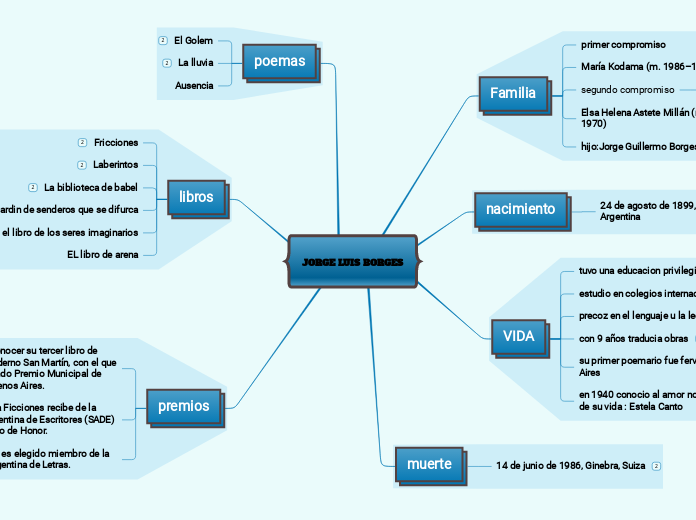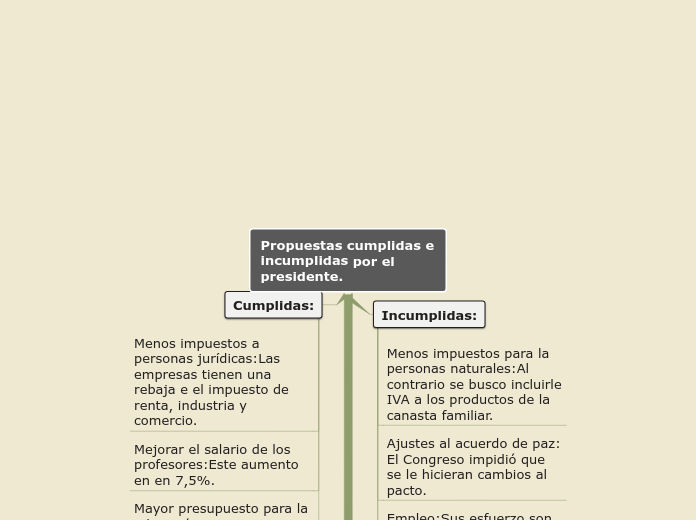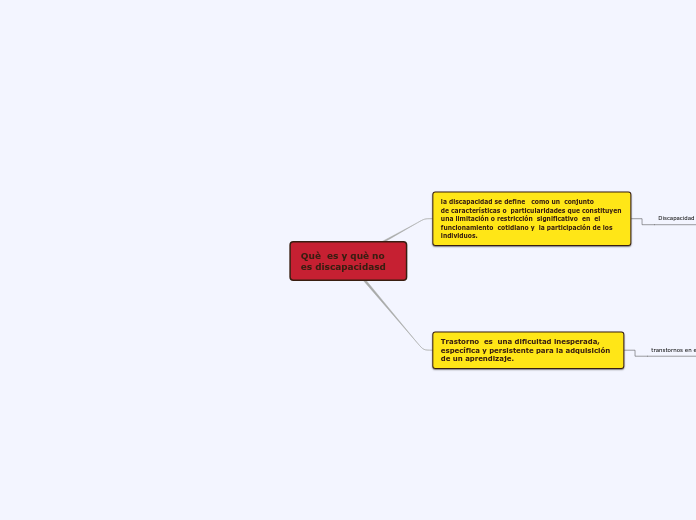JORGE LUIS BORGES
The part of speech is a category to which a word is assigned according to its syntactic functions. In English the main parts of speech are noun, pronoun, adjective, determiner, verb, adverb, preposition, conjunction, and interjection.
premios
A preposition is one of the most exciting parts of grammar. A preposition is used to describe the location of something in relation to something else.
1955. Borges es elegido miembro de la Academia Argentina de Letras.
When a preposition consists of more than one word, it is called double preposition.
into, within, upto etc.
1944. Su obra Ficciones recibe de la Sociedad Argentina de Escritores (SADE) el Gran Premio de Honor.
Compound preposition consists of two or more words.
on behalf of, according to, in front of, from across, etc.
1929. Da a conocer su tercer libro de poemas, Cuaderno San Martín, con el que gana el segundo Premio Municipal de Poesía de Buenos Aires.
When a preposition consists of one word it is called single or simple preposition.
in, at, on, to for, of, from, up, after, over, under, with, etc.
libros
An adverb is used to describe a verb, but it can also describe an adjective or another adverb.
Adverbs normally help paint a fuller picture by describing how something happens.
EL libro de arena
el libro de los seres imaginarios
Especially, Specifically, Merely, Either
El jardin de senderos que se difurca
The intensifiers strengthen adverbs adjectives and adverbs and down- toners make them weaker.
down-toners
Fairly, Rather
intensifiers
Extremely, Very
La biblioteca de babel
Just, Afterward, Soon, Currently
Laberintos
Always, usually, Never
Fricciones
Carefully, Slowly
poemas
A numeral is a word or phrase that describes a numerical quantity.
Some theories of grammar use the word 'numeral' to refer to cardinal numbers that act as a determiner to specify the quantity of a noun, for example the 'two' in 'two hats'.
Ausencia
La lluvia
One, two..
El Golem
First, second..
muerte
An article is a word used to modify a noun, which is a person, place, object, or idea. Technically, an article is an adjective, which is any word that modifies a noun.
14 de junio de 1986, Ginebra, Suiza
Indefinite articles are the words 'a' and 'an.' Each of these articles is used to refer to a noun, but the noun being referred to is not a specific person, place, object, or idea. It can be any noun from a group of nouns.
A car in the parking lot.
VIDA
A pronoun is a word that can be used in place of a noun, typically after the noun itself has already been stated.
en 1940 conocio al amor no consumado de su vida : Estela Canto
Interrogative pronouns are used in questions. Although they are classified as pronouns, it is not easy to see how they replace nouns. Who, which, what, where, and how are all interrogative pronouns.
Which, Who
su primer poemario fue fervor de Buenos Aires
Reciprocal pronouns are used for actions or feelings that are reciprocated. The reciprocal pronouns are each other and one another.
Each other, one another
con 9 años traducia obras
A reflexive pronoun ends with ...self or ...selves and refers to another noun or pronoun in the sentence (usually the subject of the sentence). The reflexive pronouns are myself, yourself, herself, himself, itself, ourselves, yourselves, and themselves.
Itself, Himself
precoz en el lenguaje u la lectura
Demonstrative pronouns are used to demonstrate (or indicate). This, that, these, and those are all demonstrative pronouns.
This, These
estudio en colegios internacionales
Possessive pronouns are used to show possession. The possessive pronouns are mine, yours, his, hers, ours, and theirs.
His, Your
tuvo una educacion privilegiada
The personal pronouns are I, you, he, she, it, we, they. More often than not (but certainly not always), they replace nouns representing people.
He, They
nacimiento
An adjective is a word that's used to describe a specific noun and to provide more detail to the listener.
24 de agosto de 1899, Buenos Aires, Argentina
Superlative adjectives demonstrate a higher level of comparison between entities.
She is the prettiest princess.
Familia
A noun is defined as a person, place, thing or idea. Proper nouns always begin with a capital letter. Common nouns, which are general words, such as 'cars,' are not capitalized.
hijo:Jorge Guillermo Borges
A noun which refers to a group of things/people.
Jorge Guillermo Borges
Family, Class
Elsa Helena Astete Millán (m. 1967–1970)
Countable nouns are nouns that can be counted, even if the number might be extraordinarily high.
Uncountable nouns are nouns that come in a state or quantity which is impossible to count; liquids are uncountable, as are things which act
like liquids.
Cats, Rain
segundo compromiso
Subtopic
María Kodama (m. 1986–1986),
Proper nouns are the names of specific people or places. They should always begin with a capital letter.
Create sentences
Mary, Paris
primer compromiso









